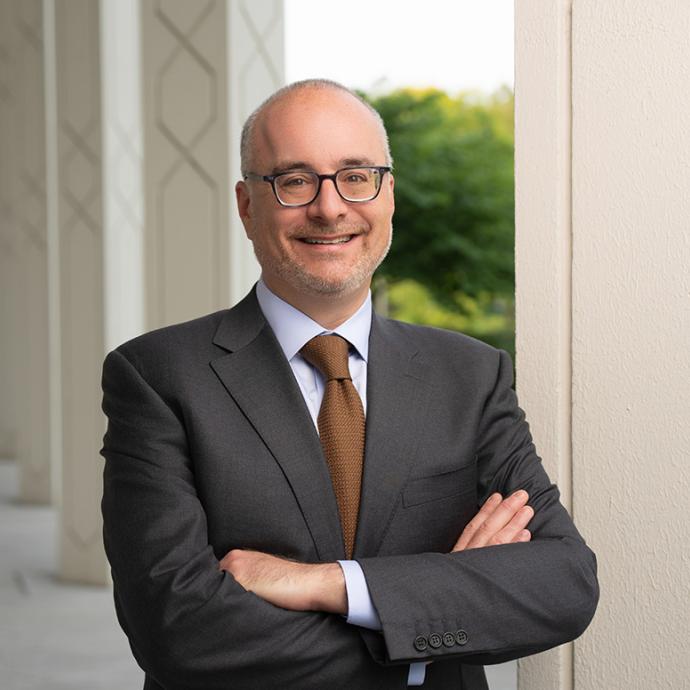The University is making a major investment in supporting graduate students, fellows and the faculty in their work as teachers, with a new director for the expanded Center for Teaching Excellence.
Renowned educator and scholar of pedagogy William Rando, who founded and led the Yale Teaching Center, will direct this UChicago program expansion.
“Bill Rando brings the dynamism, creativity and energy to approach all of the different situations in which people teach at the University of Chicago, and to collaborate with them on techniques for effective teaching,” said Deborah Nelson, deputy provost for graduate education. Faculty members, divisional deans and the deans of the Divinity School and the College, selected Rando with input from graduate and undergraduate students.
Rando, who will begin his directorship in March 2014, also will be an associate dean of the College. Rando will begin his new role by focusing on classic and evidence-based skills of teaching, pedagogical design and assessment, career development for graduate students and discipline-specific programs.
“Students in the College draw their encouragement, inspiration and confidence from excellent teachers,” said John W. Boyer, dean of the College, who has championed an expansion of the Center and Rando’s hire. “Imaginative teaching and learning is at the heart of our mission,” Boyer added.
More than 60 students and faculty and staff members worked on bringing Rando to UChicago. The group included Catherine Baumann, senior lecturer in Germanic Studies and the College. She said she was looking forward to using his pedagogical strengths in collaboration with the Chicago Language Center, which she directs.
“Having a colleague and ally who comes from the world of pedagogy will add enormous expertise to the support of teaching and learning at the University of Chicago,” Baumann said.
At Yale, Rando directed the McDougal Graduate Teaching Center for 14 years, before creating the Yale Teaching Center last year. He previously led the Academy for the Art of Teaching at Florida International University and the faculty development program at Northwestern University. He has a BA in English literature from Boston College and an MA in pedagogy and communications and a PhD in educational psychology from Northwestern.
Rando has researched and published extensively on pedagogy, assessment and adult learning. His most recent scholarship has focused on curricular transformation and inquiry-based learning in STEM (Science, Technology, Engineering and Mathematics) and medical education.
Rando’s mission at UChicago includes collaborating with faculty to develop best practices and new techniques for effectively teaching students. He said he views the Center for Teaching Excellence as a laboratory, where “teaching and learning become the objects of inquiry and praxis, approached with rigor, commitments, patience and joy.
“My mission is not to teach people how to teach, but to introduce ideas, evidence and experience that, through analysis and experimentation, will earn their way into the life of the institution or be discarded along with other ideas that do not pass muster,” he said.
The University’s current Center for Teaching and Learning, led by Elizabeth Chandler, has created a culture of self-reflection and self-assessment about teaching across the University. With the expansion and renaming of the center, Chandler says she sees great opportunities to make this process more holistic.
“The most lasting and effective tools for improving the learning environment are those that develop from within the University community,” she said. “We hope through the expansion to bring these benefits to more graduate students, more post-doctoral fellows, more international students and more faculty.”
Santiago Meija, a PhD student in Philosophy who helped the search committee interview candidates for the job, said the new Center will meet an important need among his fellow graduate students. “The more training and mentoring we get in pedagogy, the more comfortable we feel as educators,” he said.
Earlier this year Mejia worked with students and faculty from the Department of Philosophy on developing an experimental pedagogy program for graduate students who teach and serve as teaching assistants—the sort of collaboration that Rando will build upon when he arrives in Chicago in March.










 —Prof. Kunle Odunsi
—Prof. Kunle Odunsi
